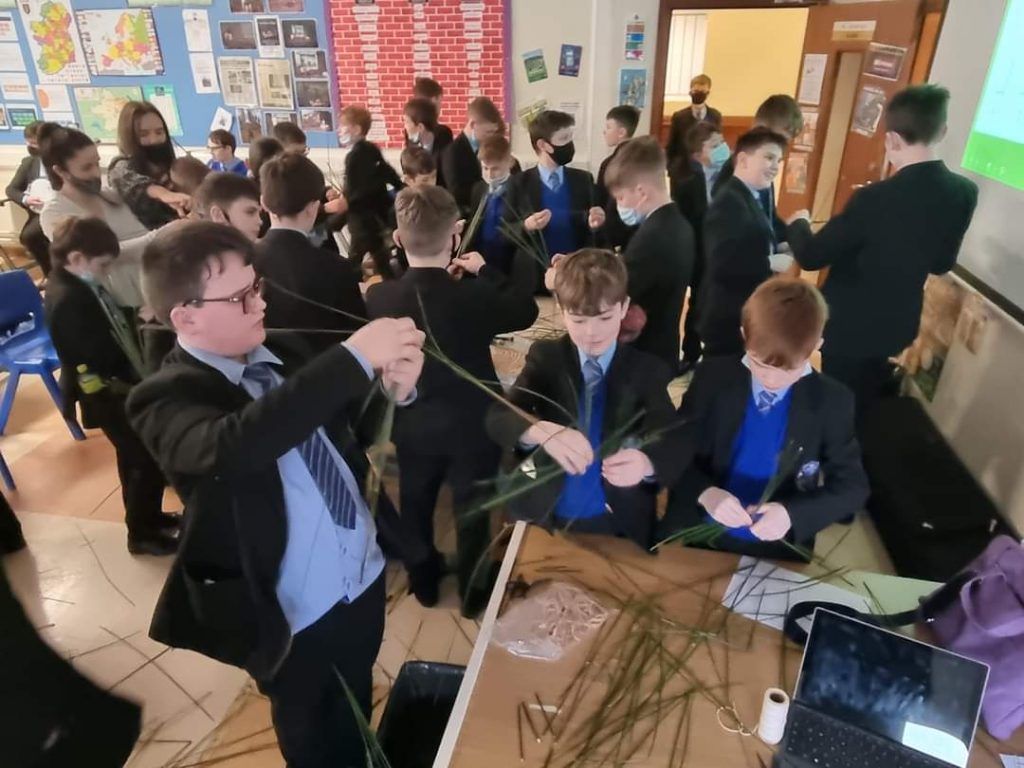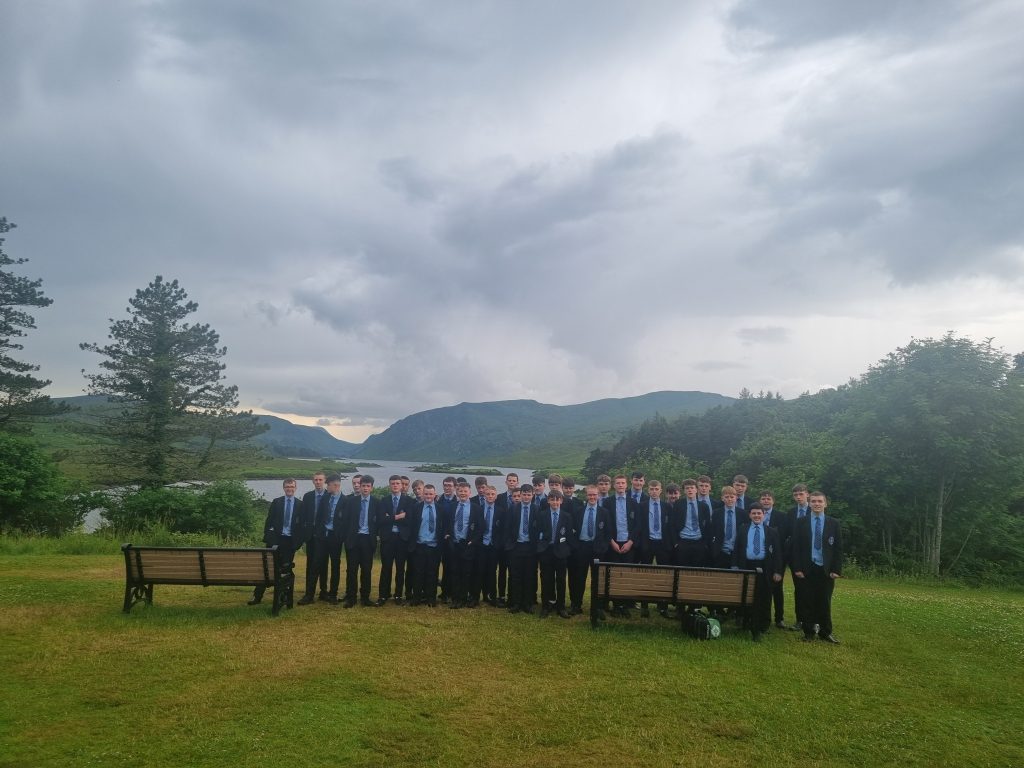Visit to the Donegal Gaeltacht
Irish Department
- Mrs E Pearson (Head of Department)
- Mr J Keaveney
- Mr H Byrne
| Bliain 8/Year 8 | Bliain 9/Year 9 | Bliain 10/Year 10 |
| Beannachtaí/Greetings
Mé Féin/Myself Dialann an Lae/Daily Routine Caitheamh Aimsire/Pastimes Mé Féin ar Scoil/Myself at School An Aimsir/The Weather |
Daoine Eile/Other People
An Aimsir/The Weather Sláinte/Health An Teach/The House Laethanta Saoire/Holidays |
Teaghlach agus Cairde/Family and Friends
Slite Beatha/Occupations Na Meáin agus Cumarsáid/Media and Communications Caitheamh Aimsire/Pastimes Dialann an Lae/Daily Routine Siopadóireacht/Shopping Saol Sláintiúil/Healthy Lifestyle |
How will I be assessed?
There will be three formal assessments for each KS3 class over the course of the school year.
These assessments usually occur at the end of November, Mid February and Mid May.
Useful links


